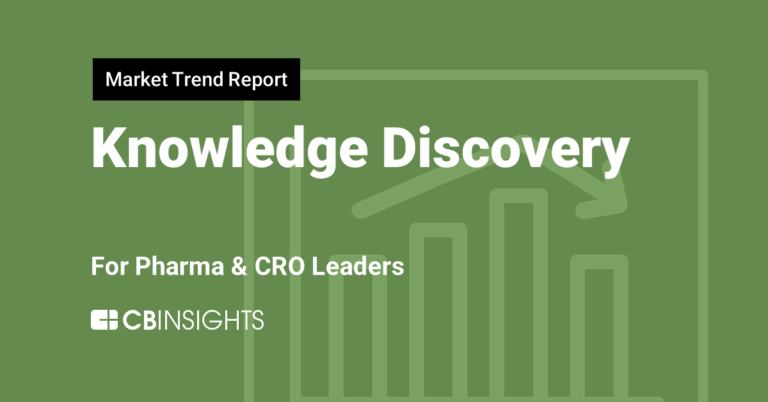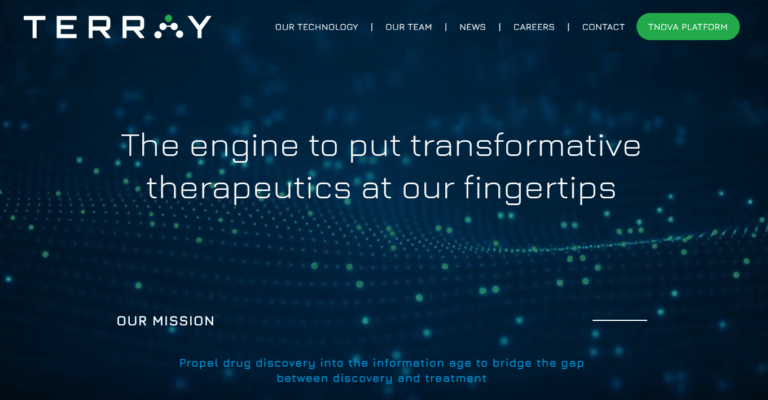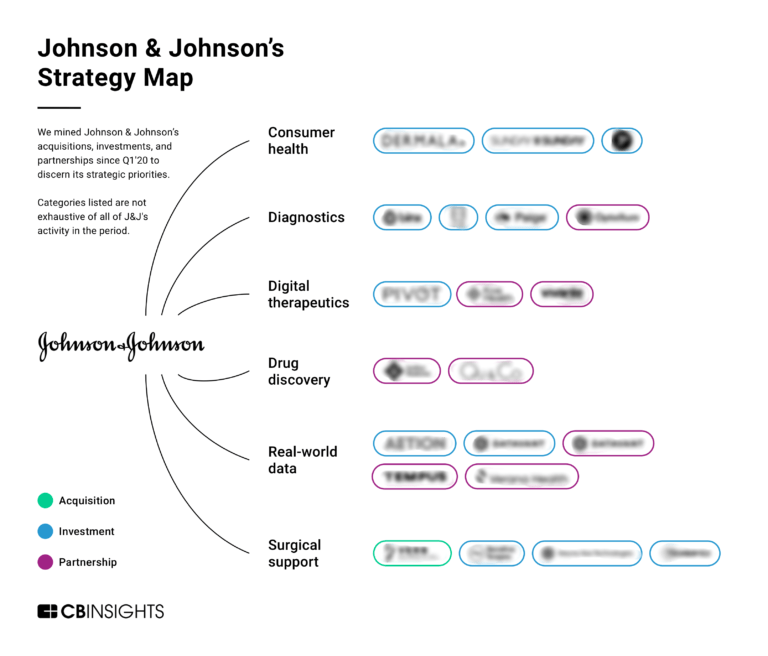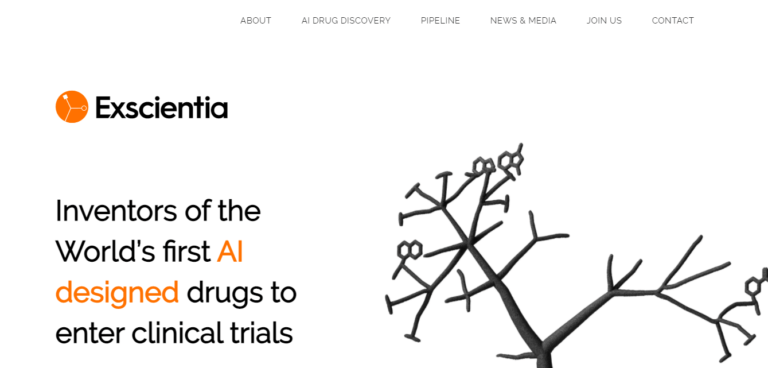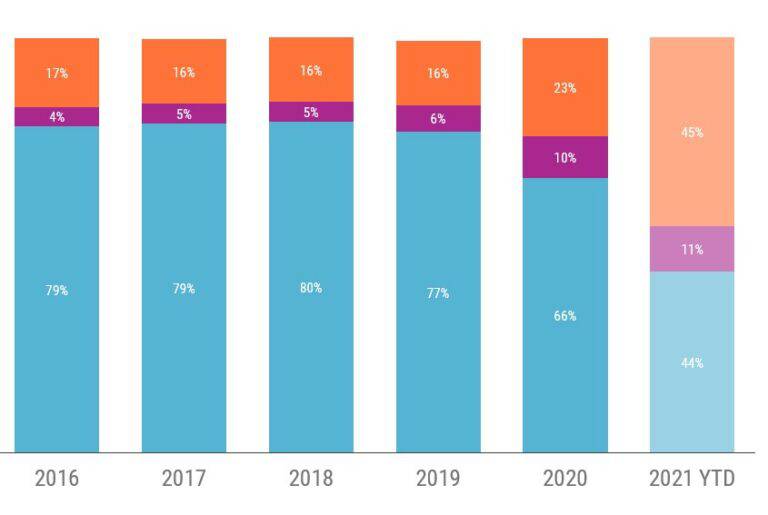
Insilico Medicine
Founded Year
2014Stage
Grant | AliveTotal Raised
$402MValuation
$0000Last Raised
$700K | 6 mos agoRevenue
$0000About Insilico Medicine
Insilico Medicine provides pharmaceutical and biotechnology companies with artificial intelligence solutions for research and development. It develops a range of generative adversarial networks (GANs) and reinforcement learning approaches to identify protein targets, generate molecular structures, and generate synthetic data. It was founded in 2014 and is based in Hong Kong, Hong Kong.
ESPs containing Insilico Medicine
The ESP matrix leverages data and analyst insight to identify and rank leading companies in a given technology landscape.
Compete with Insilico Medicine?
Ensure that your company and products are accurately represented on our platform.
Insilico Medicine's Products & Differentiators
PandaOmics
Actionable therapeutics targets identifications
Research containing Insilico Medicine
Get data-driven expert analysis from the CB Insights Intelligence Unit.
CB Insights Intelligence Analysts have mentioned Insilico Medicine in 12 CB Insights research briefs, most recently on Apr 5, 2023.
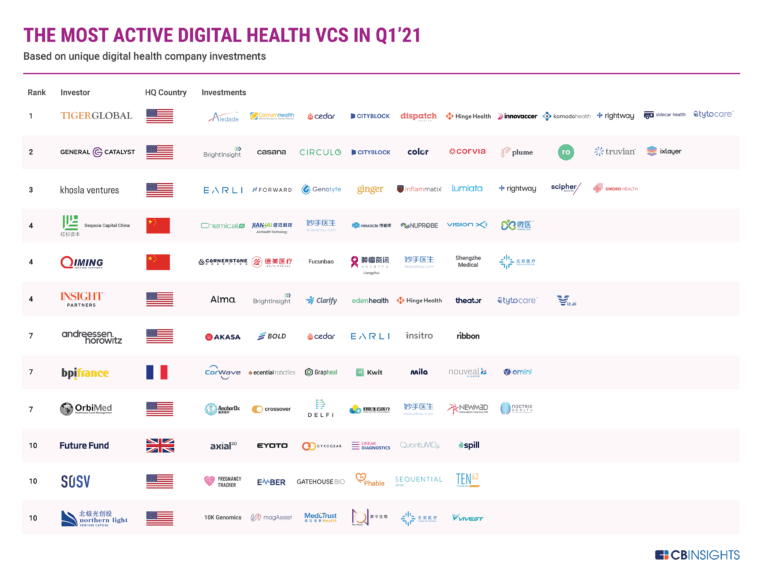
Aug 5, 2021
Here Are The Most Active Healthcare InvestorsExpert Collections containing Insilico Medicine
Expert Collections are analyst-curated lists that highlight the companies you need to know in the most important technology spaces.
Insilico Medicine is included in 8 Expert Collections, including AI 100.
AI 100
199 items
Artificial Intelligence
10,915 items
This collection includes startups selling AI SaaS, using AI algorithms to develop their core products, and those developing hardware to support AI workloads.
Biopharma Tech
6,079 items
Companies involved in the research, development, and commercialization of chemically- or biologically-derived therapeutic & theranostic drugs. Excludes vitamins/supplements, CROs/clinical trial services.
Digital Health 150
150 items
The winners of the second annual CB Insights Digital Health 150.
Omics
1,267 items
Companies involved in the capture, sequencing, and/or analysis of genomic, transcriptomic, proteomic, and/or metabolomic data
Digital Health
10,069 items
The digital health collection includes vendors developing software, platforms, sensor & robotic hardware, health data infrastructure, and tech-enabled services in healthcare. The list excludes pureplay pharma/biopharma companies and and assistive tech developers.
Insilico Medicine Patents
Insilico Medicine has filed 37 patents.
The 3 most popular patent topics include:
- Transcription factors
- Clusters of differentiation
- Artificial neural networks

Application Date | Grant Date | Title | Related Topics | Status |
|---|---|---|---|---|
9/18/2018 | 2/28/2023 | Artificial neural networks, Machine learning, Classification algorithms, Machine learning algorithms, Computational neuroscience | Grant |
Application Date | 9/18/2018 |
|---|---|
Grant Date | 2/28/2023 |
Title | |
Related Topics | Artificial neural networks, Machine learning, Classification algorithms, Machine learning algorithms, Computational neuroscience |
Status | Grant |
Latest Insilico Medicine News
May 2, 2023
Three high school students – Andrea Olsen from Oslo, Norway; Zachary Harpaz from Boca Raton, Florida; and Chris Ren from Shanghai, China – co-authored a paper using a generative artificial intelligence (AI) engine for target discovery from Insilico Medicine (“Insilico”) called PandaOmics to identify new therapeutic targets for glioblastoma multiforme (GBM). GBM is the most aggressive and common malignant brain tumor, accounting for 16% of all primary brain tumors. The findings were published on April 26 in the journal Aging. Credit: Insilico Medicine Three high school students – Andrea Olsen from Oslo, Norway; Zachary Harpaz from Boca Raton, Florida; and Chris Ren from Shanghai, China – co-authored a paper using a generative artificial intelligence (AI) engine for target discovery from Insilico Medicine (“Insilico”) called PandaOmics to identify new therapeutic targets for glioblastoma multiforme (GBM). GBM is the most aggressive and common malignant brain tumor, accounting for 16% of all primary brain tumors. The findings were published on April 26 in the journal Aging. Olsen, a student at Sevenoaks School in Kent, UK, began interning at Insilico Medicine in 2021, after discovering her interest in neurobiology and technology. For the current paper, the fifth scientific paper she has co-authored before turning eighteen, she and other researchers used PandaOmics to screen datasets from the Gene Expression Omnibus repository maintained by the National Center for Biotechnology Information and found new therapeutic targets implicated for treating both aging and glioblastoma multiforme. Ren, a student at Shanghai High School International Division, has an interest in biology and biomarkers and joined them in the summer of 2022. While there would seem to be a clear connection between aging and cancer, Olsen says their findings were more nuanced. “Sometimes, instead of aging, the body switches to cancer mechanisms, which was really interesting to discover.” She hypothesized that “the body is trying to preserve itself in a way that it is switching back to embryonic processes of cell division.” GBM is caused by a genetic mutation that leads to uncontrolled growth of glial cells, or cells that surround neurons in the brain. Even with existing therapies, the median survival for GBM patients is only 15 months. Harpaz, a student at Pine Crest School in Ft. Lauderdale, had an early interest in computer science and AI and soon developed a passion for biology as well. “I wanted to combine my two favorite topics, computer science and biology, into what I think is the most interesting field of biology – aging research,” Harpaz says. He discovered generative AI drug discovery company Insilico Medicine whose founder and CEO, Alex Zhavoronkov, PhD, connected him with Olsen. The two young researchers began collaborating on the glioblastoma project and ultimately presented findings at the Aging Research and Drug Discovery (ARDD) conference in Copenhagen, where they together launched the Youth Longevity Association (TYLA). In this latest paper, the three teens used PandaOmics to analyze the genes and identified three that were strongly correlated with both aging and glioblastoma and could serve as potential therapeutic targets for new drugs. “We selected the genes that were overlapped to be highly correlated in 11 of the 12 datasets, and we split our data into young, middle aged, and senior groups,” said Harpaz. “We mapped this to the importance of the gene expression to survival.” After identifying two genetic targets for glioblastoma and aging – CNGA3 and GLUD1 – they cross-referenced their findings with earlier findings from Insilico around genes strongly correlated with aging and identified a third target – SIRT1. “I learned a lot about conducting a research project,” said Ren, who helped review the three targets. “The PandaOmics platform really made the project accessible to me. As a high school sophomore, I did not have sufficient experience for advanced research and analysis, however, I was still able to navigate the PandaOmics platform after a brief period of training to process and compare datasets of glioblastoma.” The students say they are eager to continue their studies in AI and biology into college and to move the GBM research forward from target discovery to drug development. “The best way to take this research further is going to be using Insilico’s Chemistry42 software, where we can take the targets we identified through PandaOmics and generate small molecules, potential drugs, with these targets that have the potential to treat glioblastoma and aging at the same time,” says Harpaz. Prior to her internship at Insilico, Olsen says: “I never knew that AI could be so helpful in finding completely new therapeutic targets. For me, that was an incredible opportunity to dive into the field of research, aging, longevity, and neuroscience. It really kick-started my entire career.” “I am truly impressed by the commitment of these young researchers,” says Zhavoronkov. “I hope their work will inspire other young people excited about science and technology to look at how they can use AI tools to discover new targets and treatments for both aging and disease.” About Insilico Medicine Insilico Medicine, a clinical-stage end-to-end artificial intelligence (AI)-driven drug discovery company, connects biology, chemistry, and clinical trials analysis using next-generation AI systems. The company has developed AI platforms that utilize deep generative models, reinforcement learning, transformers, and other modern machine learning techniques to discover novel targets and to design novel molecular structures with desired properties. Insilico Medicine delivers breakthrough solutions to discover and develop innovative drugs for cancer, fibrosis, immunity, central nervous system (CNS), and aging-related diseases. For more information, visit www.insilico.com Journal
Insilico Medicine Frequently Asked Questions (FAQ)
When was Insilico Medicine founded?
Insilico Medicine was founded in 2014.
Where is Insilico Medicine's headquarters?
Insilico Medicine's headquarters is located at Unit 310, 3/F, Building 8W, Phase 2, Hong Kong.
What is Insilico Medicine's latest funding round?
Insilico Medicine's latest funding round is Grant.
How much did Insilico Medicine raise?
Insilico Medicine raised a total of $402M.
Who are the investors of Insilico Medicine?
Investors of Insilico Medicine include Bill & Melinda Gates Foundation, BOLD Capital Partners, Pavilion Capital, Qiming Venture Partners, Deerfield Management and 27 more.
Who are Insilico Medicine's competitors?
Competitors of Insilico Medicine include InstaDeep, Pepper Bio, AceMap, Cradle, InSilicoTrials and 15 more.
What products does Insilico Medicine offer?
Insilico Medicine's products include PandaOmics and 1 more.
Compare Insilico Medicine to Competitors
Cradle operates as a biotechnology company. It uses artificial intelligence (AI) assisted design tools to predict the 3D structure of a protein, generate new sequences with thermostability, optimize codons, and more. It serves biologists. The company was founded in 2021 and is based in Amsterdam, Netherlands.

Biomatter Designs is pioneering the technologies for generative protein design at the intersection of synthetic biology and AI.

Variational AI is a Vancouver, British Colombia-based company leveraging artificial intelligence to help develop new small molecule drugs.

Aqemia offers drug discovery software predicting the affinity between drug candidates and therapeutic targets responsible for diseases. It uses quantum and statistical mechanics algorithms fuelling a generative artificial intelligence (AI) to design drug candidates. The company was founded in 2019 and is based in Paris, France.
YDS Pharmatech is a drug discovery platform-modified evaluate reinforce evolve sampling (MERES). MERES has various proprietary molecular modifiers, biophysical property calculators, and AI learning engines. YDS Pharmatech was founded in 2020 and is based in Albany, New York.

Valence specializes in AI-enabled drug design and discovery services. Valence uses novel deep learning technologies to help research and development (R&D) organizations in drug design industries.
Discover the right solution for your team
The CB Insights tech market intelligence platform analyzes millions of data points on vendors, products, partnerships, and patents to help your team find their next technology solution.
